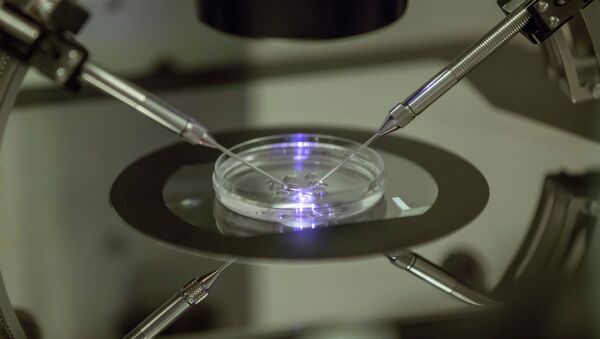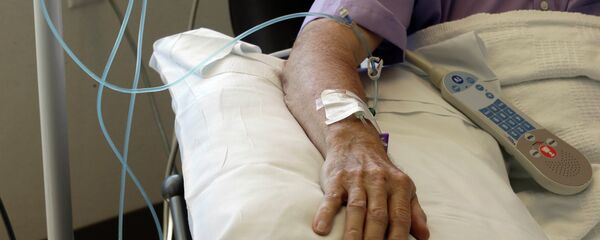At nine years old, Moaza Al Matrooshi of Dubai needed chemotherapy to treat a very dangerous blood disorder, the BBC reports. Chemotherapy can damage reproductive organs, and though frozen ovarian tissue had not yet been successfully used to conceive, her family made the decision to remove and freeze her right ovary.
Last year, with her left ovary having failed, Al Matrooshi was in the midst of menopause. Surgeons in Denmark transplanted slivers of her ovarian tissue back into her body, onto the side of her uterus and onto her nonworking left ovary. The transplant reversed the process: her hormone levels returned to normal and she began ovulating. Eight eggs were collected and fertilized via in vitro fertilization, and this week in London she gave birth to a healthy baby boy, according to the BBC.
This new leap in assisted fertility is "enormously valuable" information for the parents of girls facing medical treatments that can affect fertility, said the doctor leading the team that froze Al Matrooshi's ovary more than a decade ago.
Helen Picton, head of the division of reproduction and early development at the University of Leeds in England, told the Washington Post that Al Matrooshi provide's evidence that fertility can be restored even with ovarian tissue taken at a very young age.
"She and her family really are courageous — and pioneers — to have done this," Picton said. "It's tremendously hopeful technology because you're investing in the future fertility life of your daughter."
Picton said she was confident the treatment would work, but, "there were a lot of unknowns."
— Baby HealthMag (@BabyHealthMag) December 16, 2016
"The difference is the tissue is much smaller, the girl is much smaller," she told the Washington Post. "You really only have one chance to do this, and you have got to get it right."
Al Matrooshi's doctor, Sara Matthews, told the BBC, "This is a huge step forward. We know that ovarian tissue transplantation works for older women, but we've never known if we could take tissue from a child, freeze it and make it work again."
Al Matrooshi is also the first woman to give birth after being treated for the blood disorder beta thalassemia, according to Picton.
The new mother calls her child simply "like a miracle."
"I always believed that I would be a mum and that I would have a baby," Al Matrooshi told the BBC. "I didn't stop hoping and now I have this baby — it is a perfect feeling."




